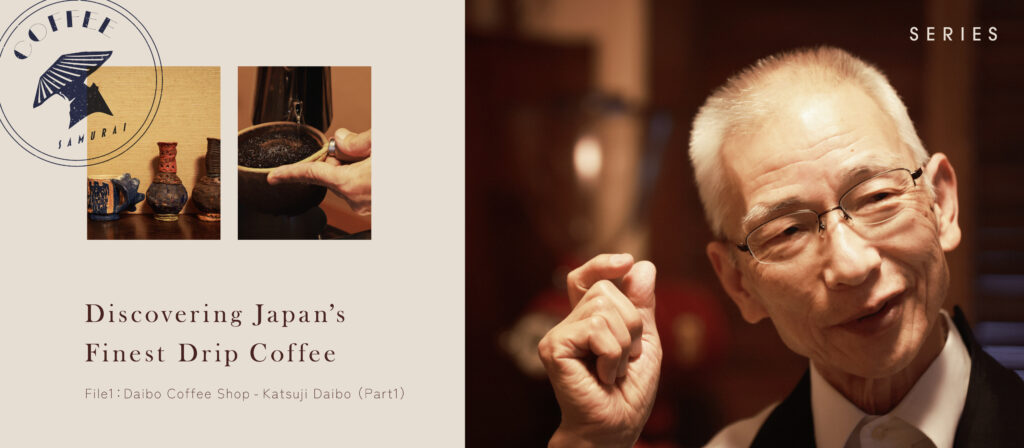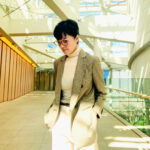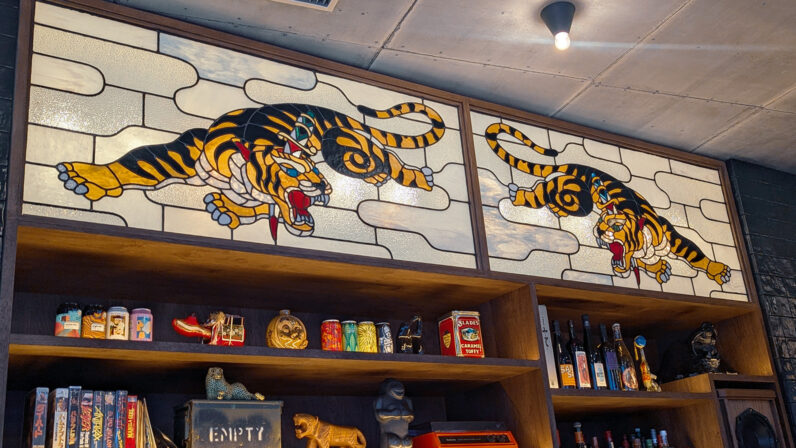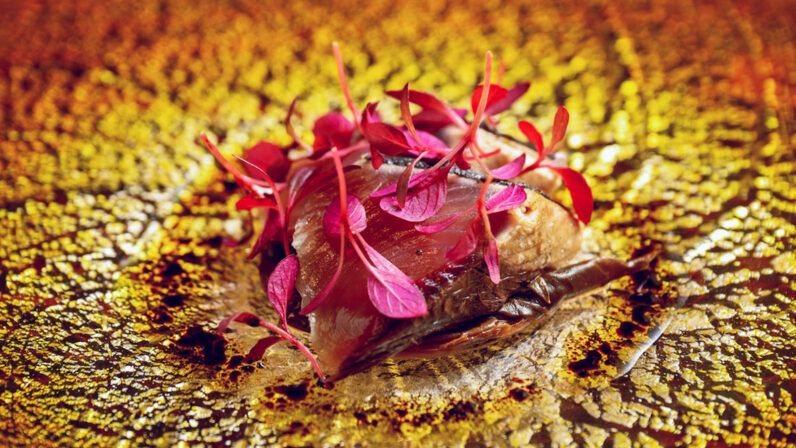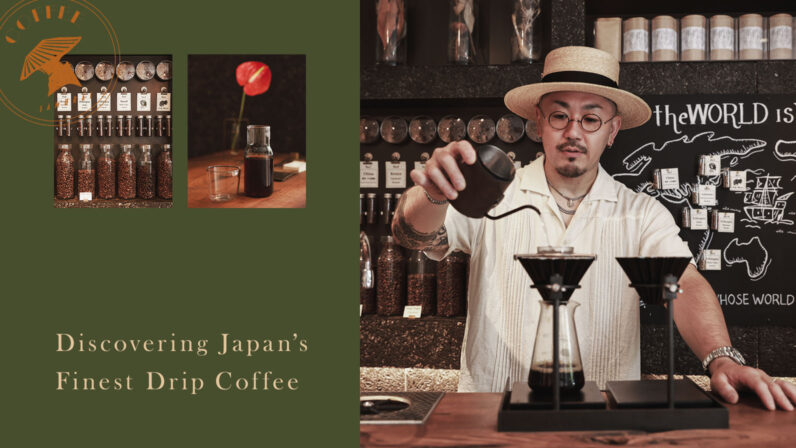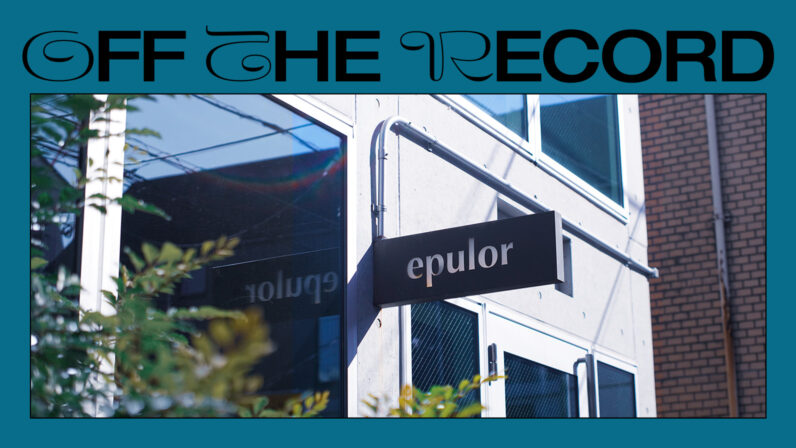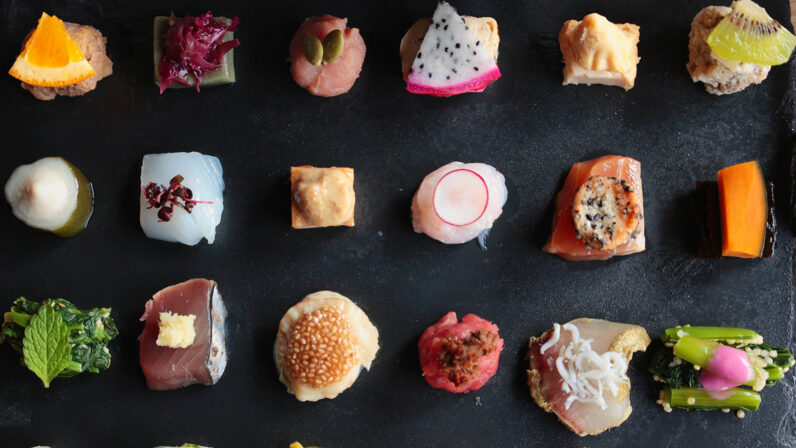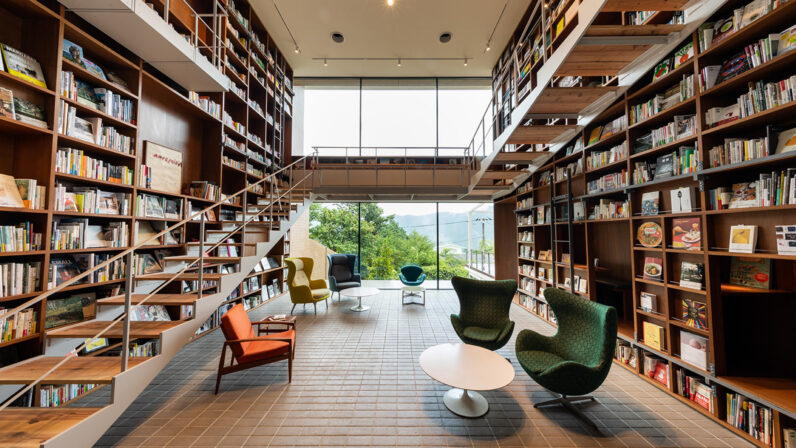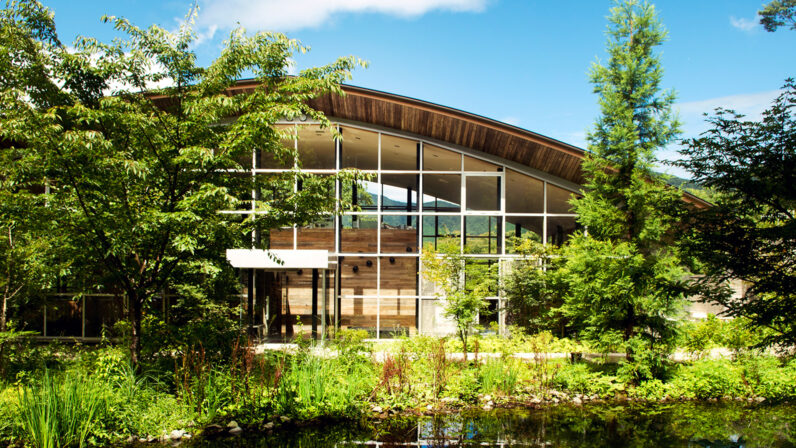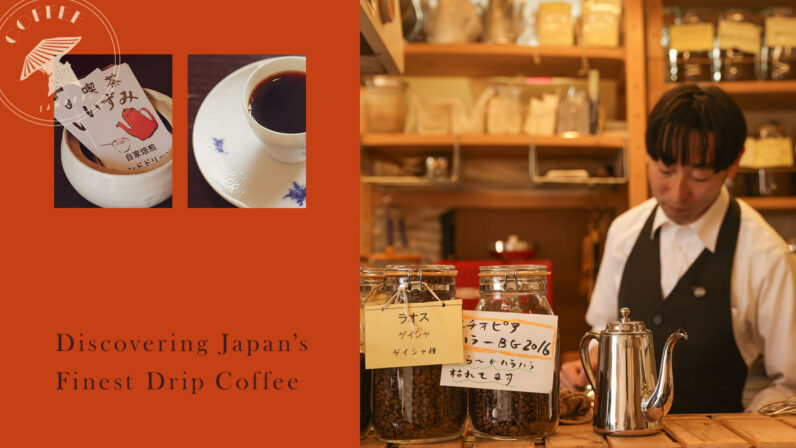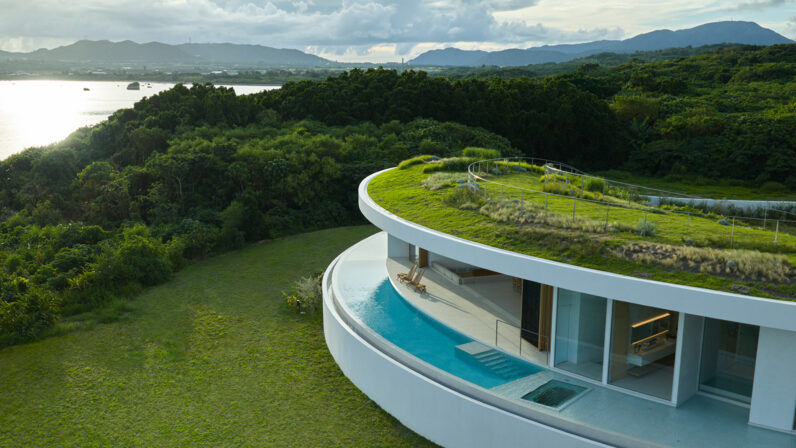Coffee shops—places for individuals to feel at ease with themselves and others.
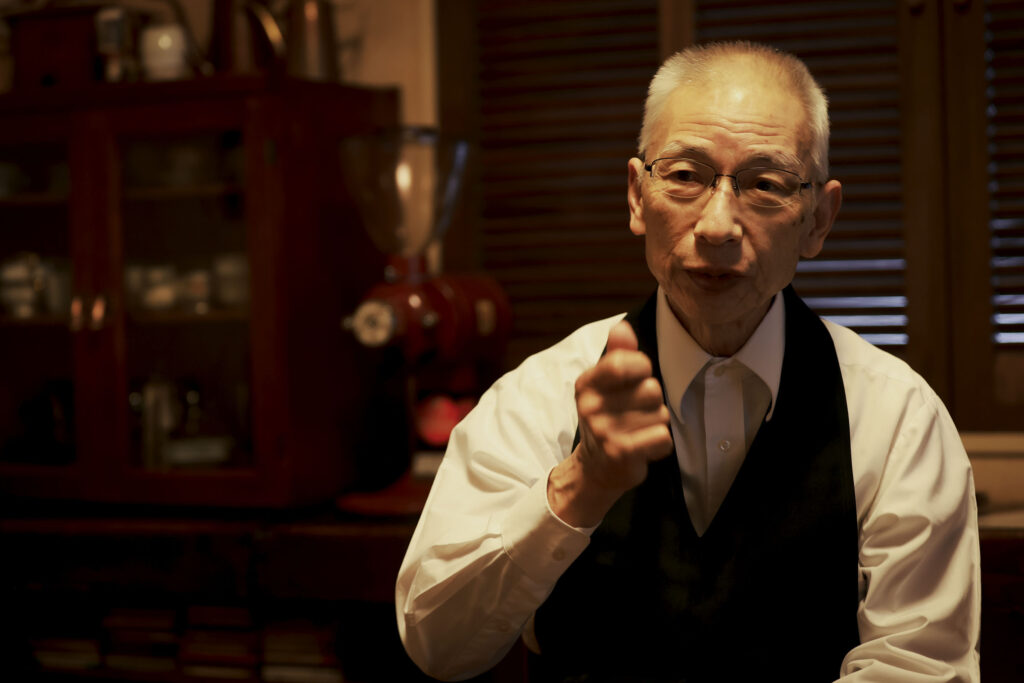
Katsuji Daibo is considered a legend by coffee-loving connoisseurs.
Katsuji Daibo was born and raised in Morioka City, Iwate Prefecture. During high school, he frequented coffee shops, engaging in literary discussions with friends and immersing himself in the world of amateur publications. At that time, he vaguely envisioned a future where he could work as a freelance journalist alongside running a coffee shop. Rather than pursuing a specific profession, he valued the idea of finding his lane and expressing himself from a small, personal base rather than seeking stability under a larger umbrella. Imaginary seeds of aspiration drifted through his mind like dandelion seeds in the wind.
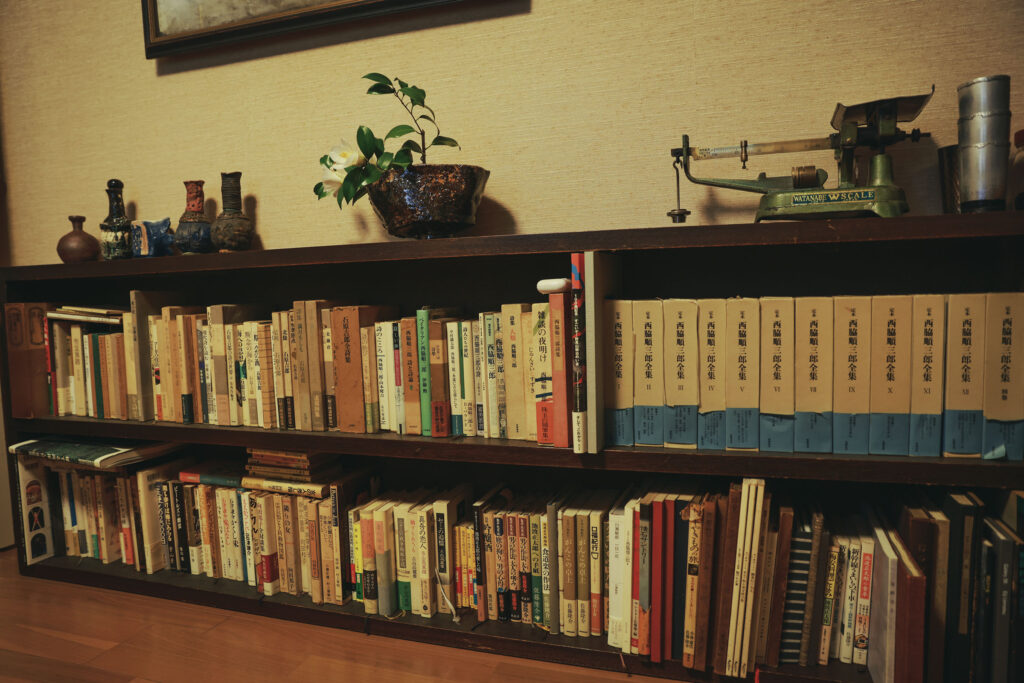
Mr. Daibo’s wealth of knowledge. The study adjacent to the coffee room was filled from floor to ceiling with bookshelves stocked with rewritten books.
After relocating to Tokyo, Mr. Daibo secured a position at a major bank. It was at a subsequent company where he encountered a pivotal figure who laid the groundwork for his coffee journey. This person was Shunichiro Nagahata, who later founded ‘Dairo Coffee Shop’ in Aoyama. Assisting Nagahata and engaging in preparations for the shop’s opening exposed Mr. Daibo to elevated aesthetic discernment, from selecting tableware to furniture, lighting, door handles, and even the smallest details like hat racks. Reflecting on that time, he recalls, “I was taught to prioritize what works over price, even with something as simple as toilet paper. I felt like I had no skills or knowledge of my own; every day was a learning experience.” Additionally, the sophisticated sensibilities of Aoyama’s cultured adults often triggered feelings of inadequacy but also provided significant inspiration. Enduring various trials, Mr. Daibo believed that in a town like Aoyama, where individualities mesh, he too could stand on his own. With this conviction, he opened ‘Daibo Coffee Shop’ in Omotesando at the young age of 27.”

Sadao Shiozaki’s ‘Sakura’, which was hung on the wall of Daibo Coffee Shop.
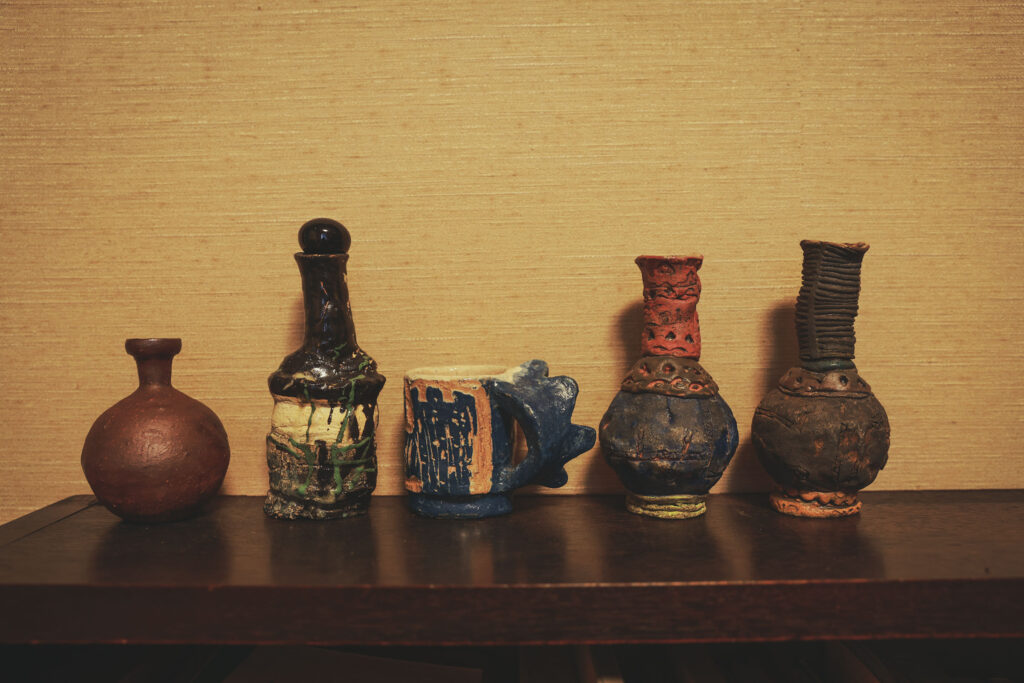
On the top of the bookshelf sat a collection of Kim Hono’s charmingly unconventional ceramics.
The sounds of jazz flowing like a session amid the hustle and bustle of the city. Paintings by Ryo Hirano and Sadao Shiozaki adorned the walls, while above the counter, shelves were packed with numerous books, and Kim Hono’s unique ceramics arranged with seasonal flowers… Each element naturally filled the space with a familiar presence, creating a stage set that quietly and calmly welcomed guests. “It’s not about right or wrong, but about choosing for oneself, making your own choices,” says Mr. Daibo. While he appreciated the ambiance of a tea room, he envisioned his coffee shop as a place where anyone was welcome. Slowly and steadily, through careful considerations and choices, the atmosphere of the shop began to take shape, capturing and embodying the essence of his vision.
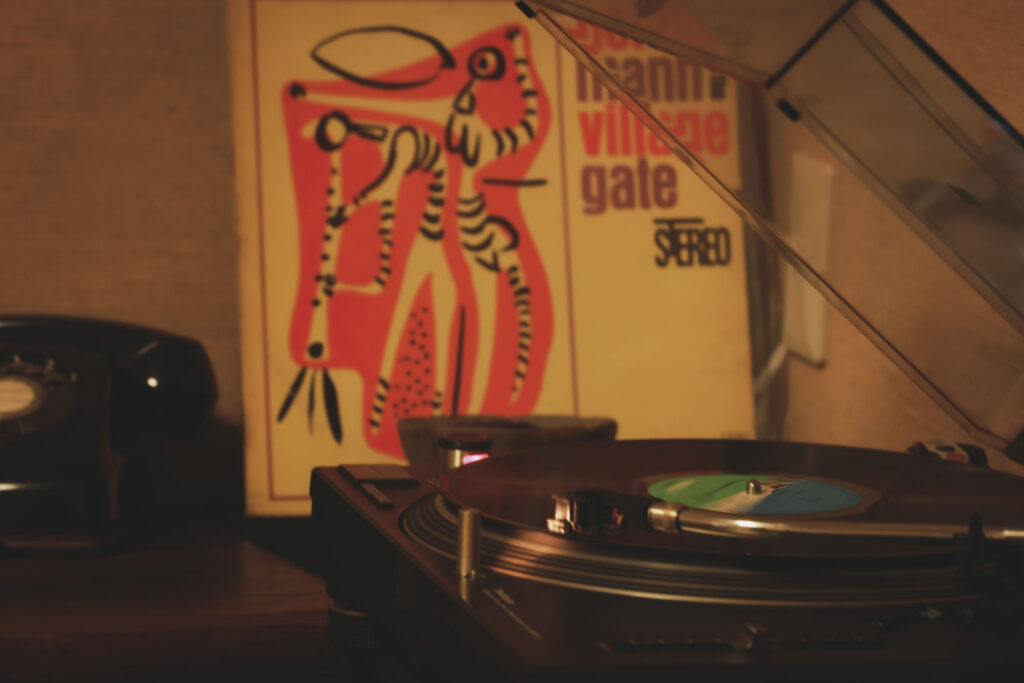
Jazz melodies flowed continuously throughout the interview.
Reflecting on the ambiance of Daibo Coffee Shop, one of its most distinctive features was its silent nature. For instance, instead of asking a long-time regular customer who hadn’t visited in a while, “It’s been a while. How have you been?”—a query that might feel obligatory—Mr. Daibo would simply say “Welcome” and convey the same sentiment through a meaningful glance. Humans naturally pick up on these cues, and the resulting sense of warmth with appropriate distance felt just right. This preference for communication through presence rather than words may have been influenced by Mr. Daibo’s appreciation for silent performances and dance over dialogue-heavy theater. Greetings were kept minimal, with “Welcome” and “Thank you.” Mr. Daibo wasn’t trying to cater exclusively to coffee aficionados but aimed to create an egalitarian space where everyone—whether newcomers or regulars, young or old—felt equally at ease. As someone who was initially just a passing visitor, I understood why I could return multiple times without ever feeling uncomfortable or out of place.
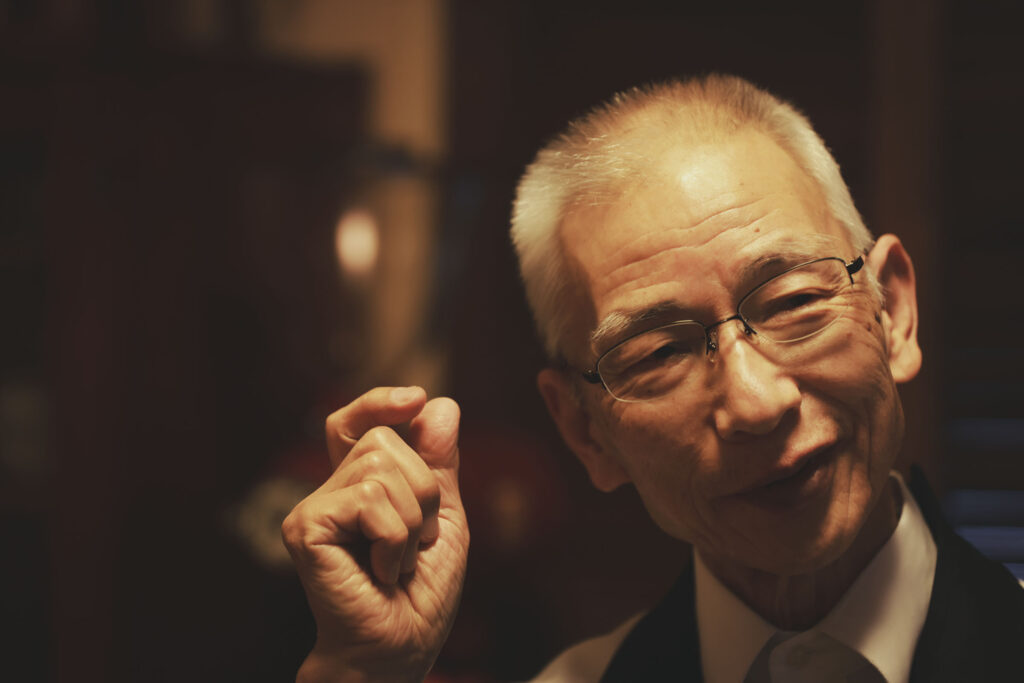
The expression in his eyes was key to Mr. Daibo’s communication.
“The essence of a coffee shop lies in taste, ambiance, and tranquility. It’s neither a workplace nor a home but a place where customers can shed their roles and armor, finding a space to be with themselves without feeling entirely alone. A precious sanctuary for introspection.” This is why Mr. Daibo would quietly greet customers with “Welcome” and bid them farewell with a calm “Thank you,” respecting their time without intruding. Occasionally, customers would respond with eye contact, conveying sentiments like “It was delicious” or “I enjoyed the flavor of that blend” without words. Through coffee as a medium, they communicated silently through their eyes. Memories of time spent at Daibo Coffee Shop, accompanied by the aroma of dark roast smoke, still resonate deep within the hearts of those who frequented the cherished haven.
Here are upcoming events where you can enjoy Katsuji Daibo's coffee:
Daibo Coffee Tasting
Date: June 16th (Sunday)
Ticket Sales: Starting from May 11th at 12:00
Location: 5-3-12 Shimomeguro, Meguro-ku, Tokyo
Website: https://fugensha.jp/events/240616daibo/
Enjoy Daibo Coffee
Date: Scheduled for September
Hosted by: Art Gallery 884
Location: 1st floor, Hills 884 Ochanomizu Building, 3-4-3 Hongo, Bunkyo-ku, Tokyo
Website: https://gallery884.888j.net/
*During the event period, there will be an exhibition featuring works by traditional Kyoto artisans.
■Part 1
